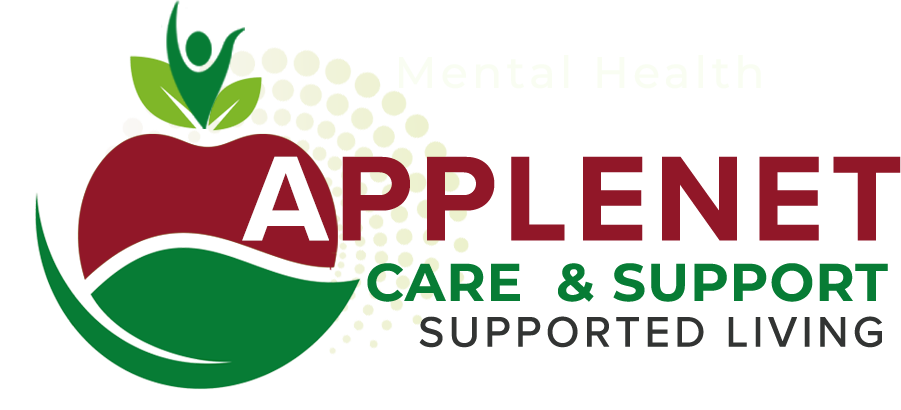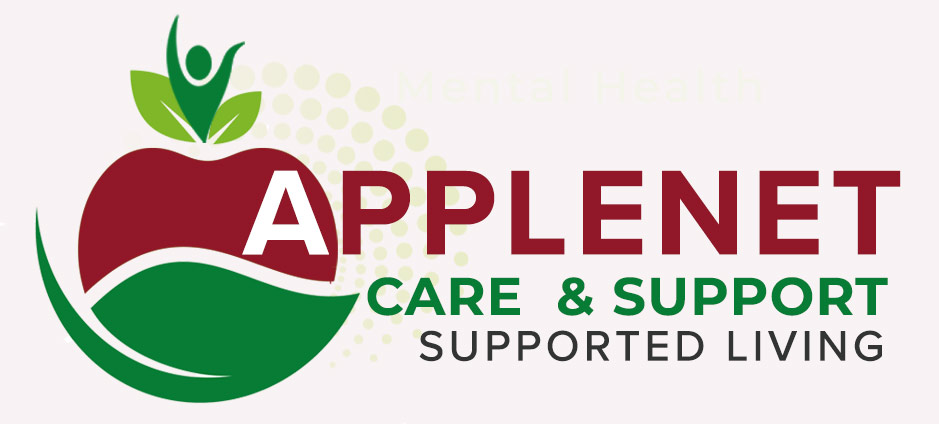Pathways
- Home
- Pathways
Our Care Pathways to Independence
At Applenet Care and Support, we recognise that each individual’s journey is unique. Our Care pathway approach ensures that support evolves with changing needs and aspirations, always moving towards greater independence and fulfillment.
The Applenet Care Pathways Model
Our care pathways model provides a structured yet flexible framework for progression:
Model 1
Initial Assessment & Transition
- Comprehensive needs assessment
- Person-centred planning
- Collaboration with existing care networks
- Gradual transition to new environment
- Settling-in support
- Building trusted relationships
Model 2
Stabilisation & Engagement
- Establishing routines and boundaries
- Developing support relationships
- Implementing initial care plans
- Addressing immediate needs
- Building trust and security
- Introducing therapeutic interventions
Model 3
Skills Development & Growth
- Practical life skills training
- Emotional regulation techniques
- Community orientation
- Social skills development
- Health management education
- Confidence building activities
.
Model 4
Progressive Independence
- Increasing self-management
- Reducing support intensity
- Expanding community involvement
- Developing natural support networks
- Educational or vocational exploration
- Financial management skills
Model 5
Community Integration
- Accessing mainstream services
- Building sustainable relationships
- Voluntary or paid employment
- Independent leisure activities
- Self-advocacy development
- Reduced formal support
Model 6
Supported Autonomy
- Minimal intervention support
- Crisis prevention planning
- Maintaining achievements
- Sustainable independence
- Long-term wellbeing strategies
- Celebration of progress
Open for Appointments
Schedule a consultation with our team and get the support you need at your convenience
Navigating Your Care Pathways to Independence
Our approach is built on key principles that support personal growth and independence. Through Measuring Progress, Pathway Transitions, and Community Connections, we ensure each individual receives the right support at every stage. Our Pathway Principles guide this journey, creating a structured and empowering experience.
Measuring Progress
Our approach to monitoring development is both structured and person-centred:
- Individual Outcome Frameworks: Each person has their own outcome measures, reflecting personal goals and aspirations.
- Regular Review Process: Progress is reviewed formally every three months, with informal monitoring throughout.
- Evidence-Based Tools: We use recognised assessment frameworks alongside personal feedback to track development.
- Celebrating Achievements: We recognise and celebrate progress at every stage, however small the steps may seem.
Pathway Transitions
Sometimes individuals need to move between services or settings as their needs change:
- Step-Up Support: If needs increase temporarily, additional support can be provided without changing accommodation.
- Transition Support: When moving between services, our transition team ensures continuity and minimises disruption.
- Hospital Liaison: During hospital admissions, we maintain contact and plan effectively for return to the community.
- Move-On Preparation: For those ready for more independent living, we provide comprehensive preparation and follow-up support.
Community Connections
Building sustainable community links is essential to successful independence:
- Community Mapping: We identify local resources, activities and opportunities relevant to individual interests.
- Graduated Introduction: Community engagement begins with supported access, gradually reducing staff involvement.
- Partnership Working: We develop relationships with local organisations to create inclusive opportunities.
- Natural Support Development: We help individuals build relationships that will sustain them beyond formal support.
Pathway Principles
Our Care pathways approach is guided by core principles:
- The individual sets the pace
- Progress is not always linear
- Independence is individually defined
- Risk is positively managed
- Skills are developed in real-life contexts
- Support reduces as independence grows
- Achievements are celebrated at every stage
- Families and caregivers are actively involved
- Wellbeing is prioritized alongside independence
- Personal goals shape the support provided
Experience Quality Care with Applenet
We provide reliable and compassionate care tailored to your needs. Contact Applenet Care & Support today to learn more about our services and how we can assist you or your loved ones. Your well-being is our priority!

